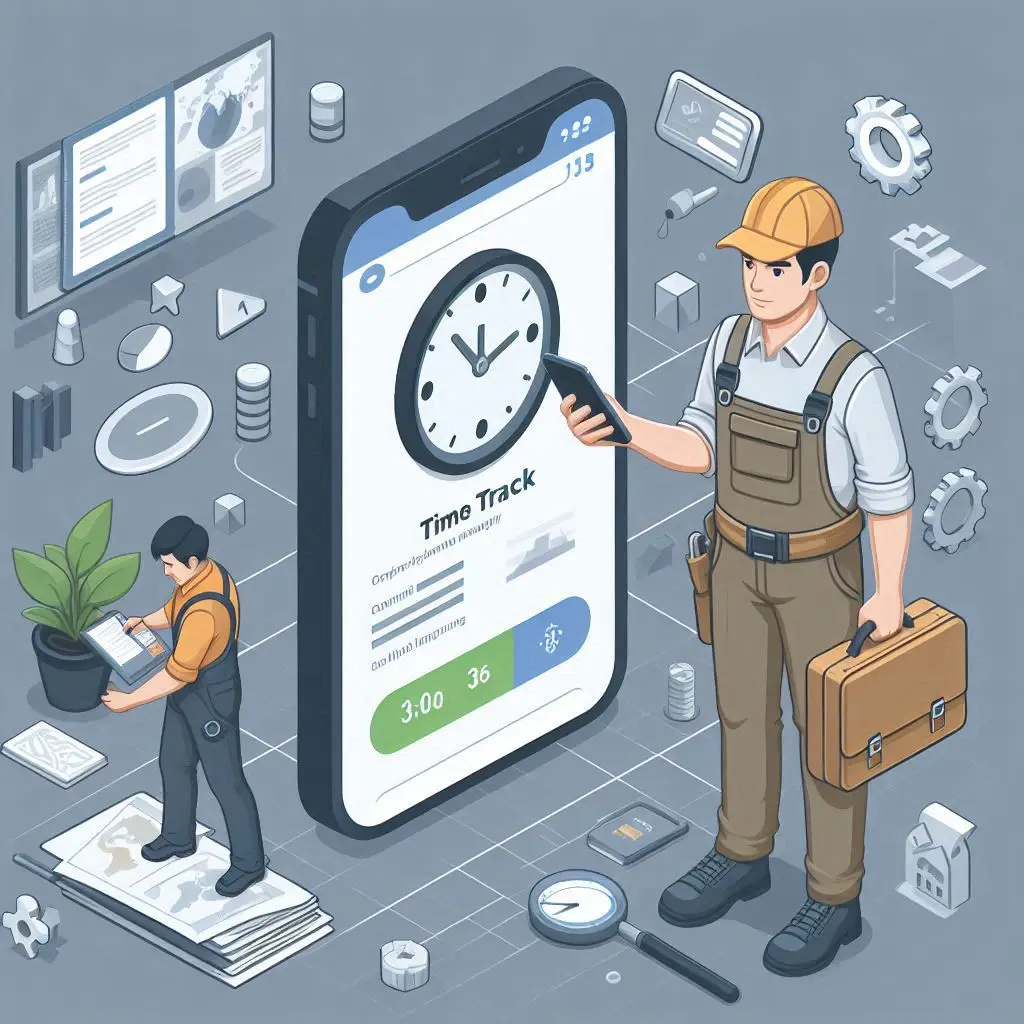In today’s evolving work landscape, the hybrid work model has become increasingly popular, blending remote with more traditional work on site. On one hand this model offers flexibility but on the other hand it also introduces challenges in maintaining accurate time tracking which is essential for productivity, project management, and fair compensation. To ensure effective time tracking in a hybrid work environment, organizations can adopt a few key strategies.
Firstly
The use of digital time tracking tools is crucial. Applications like Everyminute provide features that enable employees to log their hours efficiently, regardless of their location. These tools often come with mobile apps, which are particularly useful for employees who move between home and office. Integrating time tracking software with project management tools such as Asana, Trello, or Slack can further streamline the process, offering a comprehensive view of how time is allocated across tasks and projects. These integrations not only simplify the logging process but also enhance the accuracy of the data collected, allowing for better project planning and resource management.
Secondly
Establishing clear communication and guidelines is vital for accurate time tracking. Employers should set explicit expectations regarding how and when time should be logged. This includes defining work hours, break times, and the acceptable periods for logging in and out. Regular training sessions can help employees understand the importance of accurate time tracking and how to use the tools effectively. It’s also beneficial to foster an open dialogue about any difficulties employees might face in tracking their time accurately. For instance, some might find it challenging to log their time consistently due to distractions at home or a lack of clear separation between work and personal time. Addressing these challenges through supportive measures can significantly improve the accuracy of time tracking.
Thirdly
Continuous monitoring and analysis of the tracked data are essential. Employers should regularly review time logs to identify patterns and discrepancies. This analysis can reveal insights into productivity trends, potential bottlenecks, and areas where additional support might be needed. For example, if an employee consistently logs longer hours on specific days, it might indicate a heavier workload or inefficiencies that need to be addressed. Automated reports generated by time tracking tools can assist managers in making data-driven decisions, ensuring that resources are allocated effectively and that employees are not overburdened. Regular feedback sessions based on these analyses can help employees understand how they can optimize their work habits, ultimately leading to better time management and productivity.
Lastly
Fostering a culture of trust and accountability is crucial in a hybrid work environment. Employees should feel that accurate time tracking is not about micromanagement but about optimizing productivity and ensuring fair compensation. Encouraging employees to be honest about their work hours and any challenges they face can lead to more accurate and reliable data. Managers should lead by example, demonstrating their commitment to accurate time tracking and transparency. By building a supportive environment where employees are motivated to log their time honestly, organizations can ensure their hybrid work model functions smoothly and efficiently. Accurate time tracking is not just a logistical necessity but a foundation for trust, collaboration, and effective management in a dynamic work environment.
Conclusion
Accurate time tracking in a hybrid work environment requires the right tools, clear guidelines, regular monitoring, and a culture of trust. By implementing these strategies, organizations can enhance productivity, manage projects effectively, and ensure fair compensation, ultimately making the hybrid work model a success.


